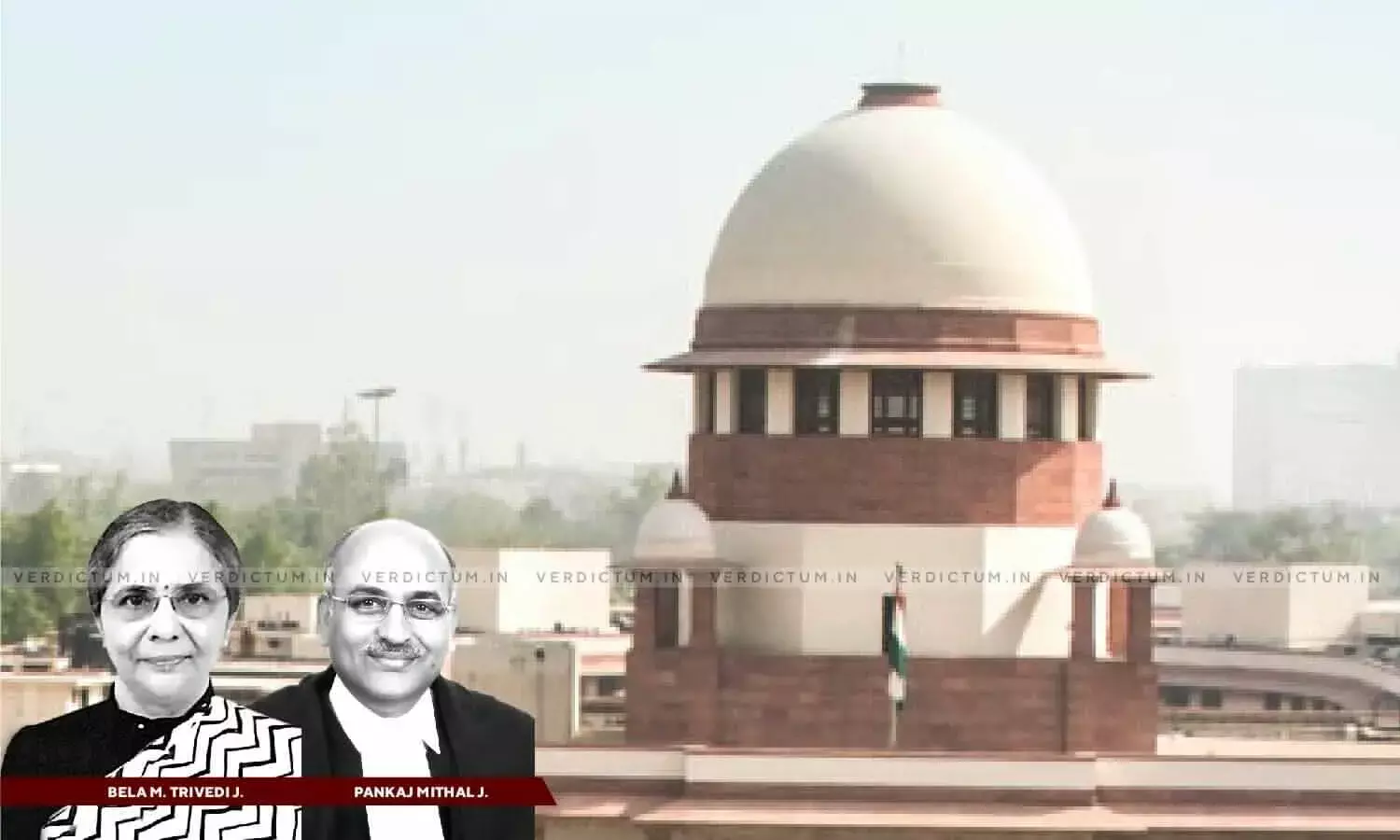Accused Not Entitled To Default Bail Merely Because Further Investigation Qua Other Accused Is Pending At The Time Of Filing Chargesheet: Supreme Court
The Supreme Court held that the pendency of the further investigation qua the other accused or for production of some documents not available at the time of filing of chargesheet would neither vitiate the chargesheet, nor would it entitle the accused to claim right to get default bail on the ground that the chargesheet was an incomplete chargesheet or that the chargesheet was not filed in terms of Section 173(2) of Cr.P.C.
The court said that once from the material produced along with the chargesheet, the court is satisfied about the commission of an offence and takes cognizance of the same, it is immaterial whether further investigation under Section 173(8) of Criminal Procedure Code (CrPC) is pending or not.
The Court held thus in an appeal filed by Central Bureau of Investigation (CBI) that had challenged the order of the Delhi High Court upholding the order of the Special Judge by which the accused persons were granted default bail under Section 167(2) of CrPC.
The two-Judge Bench comprising Justice Bela M. Trivedi and Justice Pankaj Mithal observed, “Once from the material produced along with the chargesheet, the court is satisfied about the commission of an offence and takes cognizance of the offence allegedly committed by the accused, it is immaterial whether the further investigation in terms of Section 173(8) is pending or not. The pendency of the further investigation qua the other accused or for production of some documents not available at the time of filing of chargesheet would neither vitiate the chargesheet, nor would it entitle the accused to claim right to get default bail on the ground that the chargesheet was an incomplete chargesheet or that the chargesheet was not filed in terms of Section 173(2) of Cr.P.C.”
The Bench said that the benefit of proviso appended to sub-section (2) of Section 167 of CrPC would be available to the offender only when a chargesheet is not filed and the investigation is kept pending against him and once however, a chargesheet is filed, the said right ceases.
ASG S.V. Raju appeared for the appellant while Senior Advocates Mukul Rohatgi and Amit Desai appeared for the respondents.
In this case, an FIR was registered based on a complaint for the offences punishable under Section 120-B read with Section 409, 420, and 477A of the Indian Penal Code (IPC) and Section 13(2) read with Section 13(1)(d) of the Prevention of Corruption Act, 1988 against Dewan Housing Finance Corporation Ltd. (DHFL) and 12 other accused persons/companies. It was alleged that the respondent i.e., Chairman and Managing Director of DHFL along with 12 others entered into a criminal conspiracy to cheat the consortium of 17 banks led by Union Bank of India and induced them to sanction huge loans aggregating to Rs. 42,000 crores approx.
The accused siphoned off and misappropriated a significant portion of the said funds by falsifying the books of account of DHFL and deliberately and dishonestly defaulted on repayment of the legitimate dues of the said consortium banks, causing wrongful loss of Rs. 34,000 crores to the consortium lenders. After being arrested, the accused filed an application under Section 167(2) CrPC before the Special Court seeking statutory bail and the same was allowed. The CBI being aggrieved by this, approached the High Court but it dismissed its petition and hence, the matter was before the Apex Court.
The Supreme Court in view of the facts and circumstances of the case noted, “In view of the above settled legal position, there remains no shadow of doubt that the statutory requirement of the report under Section 173 (2) would be complied with if the various details prescribed therein are included in the report. The report under Section 173 is an intimation to the court that upon investigation into the cognizable offence, the investigating officer has been able to procure sufficient evidence for the court to inquire into the offence and the necessary information is being sent to the court. The report is complete if it is accompanied with all the documents and statements of witnesses as required by Section 175 (5). As settled in the afore-stated case, it is not necessary that all the details of the offence must be stated.”
The Court further noted that the right of the investigating officer to pray for further investigation in terms of sub-section (8) of Section 173 is not taken away only because a chargesheet is filed under sub-section (2) thereof against the accused.
“Though ordinarily all documents relied upon by the prosecution should accompany the chargesheet, nonetheless for some reasons, if all the documents are not filed along with the chargesheet, that reason by itself would not invalidate or vitiate the chargesheet. It is also well settled that the court takes cognizance of the offence and not the offender”, it said.
The Court concluded that the chargesheet having been filed against the respondents-accused within the prescribed time limit and the cognizance having been taken by the Special Court of the offences allegedly committed by them, the respondents could not have claimed the statutory right of default bail under Section 167(2) on the ground that the investigation qua other accused was pending.
Accordingly, the Apex Court allowed the appeal and set aside the impugned orders.
Cause Title- Central Bureau of Investigation v. Kapil Wadhawan & Anr. (Neutral Citation: 2024 INSC 58)
Appearance:
Appellant: AOR Mukesh Kumar Maroria, Advocates Zoheb Hussain, Annam Venkatesh, Akshay Nain, Vivek Gurnani, Hitarth Raja, Madhumita Kesavan, Samrat Goswami, Harsh Paul Singh, Sonali Sharma, Gaurav Sarkar, Bhavini Srivastavam, Baibav, and Sairica Raju.
Respondents: Advocates Mahesh Agarwal, Ankur Saigal, Rohan Dakshini, Pooja Kothari, Kamakshi Sehgal, Kajal Dalal, Archit Jain, Rajesh Kumar, and AOR E. C. Agrawala.




